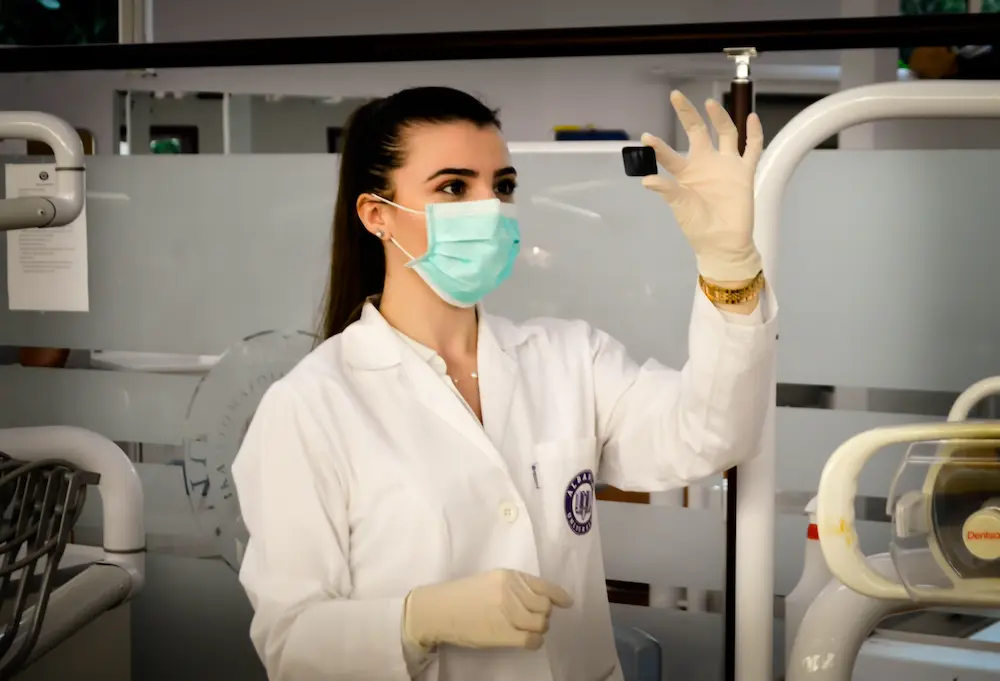With each passing year, medical science has been pushing the boundaries of what was once thought possible. The pace of innovation in the healthcare industry is astounding, with 2023 being no exception. Here are some of the significant breakthroughs to watch this year:
Wearable Medical Devices
Thanks to the advancement of the Internet of Medical Things (IoMT), a new generation of wearable devices is emerging, facilitating seamless data sharing among medical devices, healthcare software, and IT platforms. Devices like smartwatches, previously seen as mere fitness trackers, have been revolutionized, now allowing users to monitor markers like blood pressure and heart rate.
Machine Learning and AI in Drug Discovery
The journey from identifying potential drug candidates to getting a market-ready solution is long and challenging. Machine learning (ML) and AI offer promising solutions to expedite this process.
Leveraging the power of machine learning and AI, X-ray crystallography services have become more streamlined, allowing researchers to rapidly analyze complex structural data and accelerate the drug discovery process.
A British start-up, Exscientia, made history in 2020 by pioneering the first-ever machine-learning-engineered drug to undergo clinical trials for obsessive-compulsive disorder (OCD), a feat achieved in a mere year compared to the standard five-year timeline. Such accomplishments hint at the growing significance of AI and ML in drug discovery in 2023.
Nanomedicine: A Glimpse into the Future
The concept of nanotechnology, while relatively nascent, is rapidly gaining traction. Recent research from institutions like Harvard and Tufts Universities has ushered in the age of “xenobots,” self-replicating organisms synthesized from stem cells. Their potential applications, from cancer cell mitigation to environmental preservation, are vast. 2023 might be the year when nanomedicine begins to reshape our approach to tackling complex diseases.
It’s something the healthcare in the US is focusing heavily on, and can perhaps be amplified by the recruitment of more specialist physicians and experts through companies like MASC medical – mascmedical.com – to focus on acquiring people with the expertise to advance the discovery.
Revolutionizing Genetic Interventions with CRISPR
CRISPR, or Clustered Regularly Interspaced Short Palindromic Repeats, represents a paradigm shift in genetic manipulation. This naturally occurring defense mechanism in bacteria has been harnessed to modify human DNA, potentially addressing genetically linked diseases such as Inherited Ataxia and Duchenne Muscular Dystrophy. While still in its early stages, the promises held by CRISPR are monumental.
Tailored Clinical Trials: A Focus on Ethnic Genetics
Historically, clinical trials predominantly featured North American-based epigenetic profiling. However, with the recognition that certain races or ethnicities are predisposed to specific conditions, a shift towards more inclusive, genetics-based trials is evident. Such trials can offer hope to those grappling with traditionally fatal diseases, paving the way for personalized therapies.
Non-Invasive Prenatal DNA Tests
Traditional prenatal tests posed risks, such as miscarriage. However, new methodologies like NIPD and NIPT allow for the non-invasive analysis of fetal DNA from maternal blood. These tests can predict risks for numerous genetic disorders and offer a more accurate alternative to traditional blood tests and ultrasound scans.
Lifesaving Neurovascular Interventions for Stroke Victims
With stroke victims, time is of the essence. Neurovascular stent retrievers have emerged as a groundbreaking intervention, enabling rapid restoration of blood flow to the brain and reducing potential damage, disability, or fatality.
Early Detection of Cancer through Protein Biomarker Analysis
Proximity ligation assays (PLA) have revolutionized early cancer detection. Unlike traditional tests that diagnose based on genetic mutations post-facto, PLAs provide real-time insights into cancer presence, improving the efficacy of treatments and enhancing survival rates.
Pioneering Treatments for Female Sexual Health
While male sexual health has been in focus for decades, 2022 marked a turning point for women’s health, with the FDA approving the first-ever medication for female hypoactive sexual desire disorder. This advancement underscores the increasing emphasis on comprehensive sexual health solutions.
Revolutionizing Diabetes Management
The World Health Organization estimates a significant global diabetes prevalence. Traditional management methods have been invasive, requiring regular blood sampling. 2023 brings a ray of hope with the advent of non-invasive biosensors for real-time glucose monitoring, offering a more patient-friendly approach to diabetes management.
To conclude, 2023 is gearing up to be an exciting year in the realm of medical innovations. With a blend of technology, research, and dedication, the future of healthcare looks brighter than ever.

